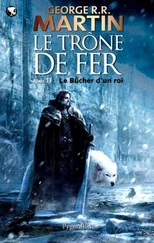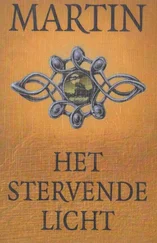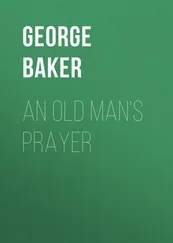She stared at me for a long moment, then shook the flail and spoke a word of Protection from the carrion gods of the Ynar … “You won’t need that for me,” I said. Her eyes widened: the dark green of winter forests. I remembered Hafyre and held my breath. The priestess was not as old as I’d first assumed. She did better than water, making me tea from the bittersweet verthane of the high slopes and keeping a polite silence until I’d drunk the first three mouthfuls. Then she said, “I ask you again. Where did you get this?”
“From a slave palace.” She had not yet realized that I was not a man. If I had my way, she never would. “What I was doing there—that’s my business. But I met a girl, who told me that she was a princess of the Ynar. Her name was Hafyre. She gave me this.” I pointed to the emblem.
“And you brought it back to us. Why?”
“I’m traveling across the Cold Deserts to Coyine. I want safe passage.”
“And so you buy it with an emblem of the lost,” she said, but consideringly, without condemnation. I could see that she was thinking fast.
“If you like.”
She gave a swift gesture of assent. “Very well. What else did you understand of the girl? ‘Princess’ is not a term we know.”
I affected disinterest. “I’m not familiar with your hierarchies.”
“Very well, I shall explain them to you, though no man can apprehend how the Tribes are governed.” She turned her head and spat. “You with your male-ruled cities—you cannot understand our matriarchies. Hafyre is ghost-touched, grass-haunted. There was a comet at her birth, and we believe that is a herald from the carrion lords who live between the winds, the land where death is. She is an oracle, a harbinger, and she is marked for power.”
“Then you’ll be wanting her back.”
“As you say. She went missing a year and a half ago; we had thought her dead, but the wind brought no messages from her, and I confess that I did not understand why.”
I looked away. “How do you plan to retrieve her?”
“Ah,” the Shan-hai said, “I don’t think it wise to tell you that.”
“It’s none of my concern, really. But you’ll guarantee safe passage?”
“Yes. You have done me a service. Even though you are a man, I won’t forget it. There’ll be a ceremony tonight because of this—you will stay. I say this not because I wish to honor you: It is the best way to inform as many people as possible of your presence, at once.”
“What does this ceremony involve?”
“A call to the winds and the gods who ride them. No more than that. You won’t be expected to do more than watch. The priestesses run things here.”
“Then it will be an honor indeed,” I said, and saw her cold, forest-eyed smile.
To the citizens of Cadrada, these people are barbarians. Remembering Halse’s palace, and the things that happened there, I rather think it is more even-handed than that. The ceremony to which I had been invited was held up in the rocks, on a low plateau looking out across the darkening plain and the red sun falling. The air grew colder swiftly and smelled of snow. Huge harps of sinew were threaded between tall poles, and, as the dusk breeze grew, they began to whine and sing. The priestess moved among them, whispering, in a dance that grew steadily wilder as the evening wore on. By the time the actual ceremony was due to begin, some three hundred people had gathered. I saw the banner of the Ynar again, but others, too. The women gathered about the fires; the men stood sullenly on the fringes, standing guard.
The Shan-hai called on the carrion spirits of the wind. They use an older tongue for these ceremonies, a language that has been dead for thousands of years and has nothing to do with the builders of the canals or the cities of the plain. It is wilder, stranger, not at all human. It made my skin crawl to hear it, and yet it filled me with a strange ascetic sense of longing: the reverse of the sex-songs that they sing in the palaces to inflame all those who hear them. This spoke of purity and deliberate isolation. Perhaps it was what I needed. I became lost in the thin harmonies, as the priestess berated or cajoled or implored the carrion gods; I did not know which. But then I became aware that someone was close to my shoulder. Casually, I turned.
His tea-colored eyes caught the firelight. His coat was frayed, but originally of good quality, and he wore a hat with an emblem upon it—the same form of emblem that I had brought to the priestess. Close to, his face was sallow and long, like a chiseled candle, under a fall of fawn-brown hair. I had last seen him on a black-furred mount, pursued by the sorcerer from Ithness.
“You rescued me,” he said. He sounded amused. His voice was low, like silk and razors, with the sibilants of the plains. “Why?”
“I don’t like Ithness.”
“The hotels? The shopping?”
I inclined my head, though my smile was hidden by the mask. “Neither are good. The hotels are verminous and the shops overpriced. Their sorcerers are worse.”
“This one isn’t dead, by the way. Regrettably. You’d need a bolt or poison for that, or one of their own spells, not a barb gun. But it was a kind thing to do. And altruism always worries me.”
“It worries me, too. That’s why I never practice it. What did you do, to be pursued so far and so hard? Are you a traveler? You’re no tribesman, yet you wear their sign.”
“Well,” he said, “I am indeed a traveler, and as for why I am permitted to wear the sign of the Ynar, that’s a longer story. If this was Scarlight, I’d offer to discuss it over a drink. But here—”
“The tribes don’t indulge in wine or spirits. Unless you like fermented tope milk.”
“That’s why I brought a hipflask.”
We both deemed it prudent to wait until the ceremony was over before returning to a tent and pouring out measures. I was feeling insecure. He was flirting, I could have sworn it, and that was a problem. Either he knew me for a woman, or he thought I was a man. Neither possibility was reassuring. I kept to the shadows and made sure that the mask was securely tied, nor did I drink much, although the man I had rescued watched me all the while.
He had not told me his name, but he did not need to. He was called Nightwall Dair. He was the only man who had ever gone beyond the Nightwall of the far north, the great glacier that separates Heth from the plains, or at least the only man who had done so and lived. He had brought back a captive, a strange black thing with golden eyes, who had lived for a time before spilling its secrets to the sorcerers of Cadrada. I’d seen it, and him, at Lord Halse’s palace, and, as I’ve said, we’d crossed paths on several occasions before that. Dair was a manhunter, just as I was, and a hunter of other things, too. Not an easy man to trick, and I did not know if I had succeeded.
We spoke of Scarlight, and Cadrada itself, lightly enough, as men do when they meet in a strange place. At length, he said, “I know you, I am sure of it.”
I shrugged. “Perhaps we have met on our travels. There is something a little familiar about you.”
“Many people know me,” he said. He spoke as if it did not matter.
“Perhaps, then, we have met. But I have still not heard your name.”
He gave a grin filled with teeth. “Just as well. If you had, you would have reason to be afraid.”
“Many say the same of me.” I rose to my feet. “It’s getting late, and I have a long way to go.”
There was a faint curiosity in his face. “Where are you headed?”
“Coyine.”
“The Tribes don’t like travelers.”
“That’s why I’ve paid for safe passage.”
“They don’t use money.”
“I wasn’t talking about money.”
Читать дальше












